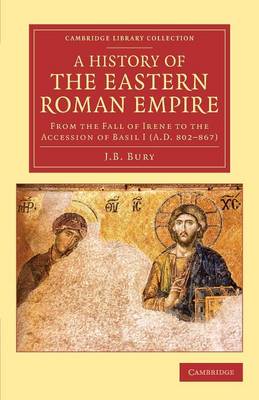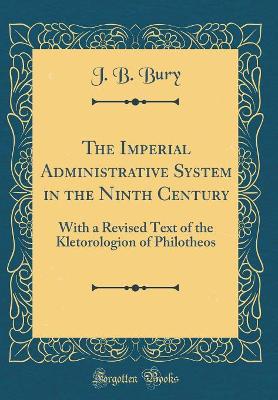Cambridge Library Collection - Medieval History
2 total works
The classical historian J. B. Bury (1861-1927) was the author of a history of Greece which was a standard textbook for over a century. He also wrote on the later history of the Roman empire, and, in this 1912 work, examines the Byzantine empire in the ninth century. The book is a continuation of his two-volume History of the Later Roman Empire of 1889, which covers the period from 395 to 800 (and is also reissued in this series), and reflects Bury's belief that the century-long so-called Amorian epoch 'is not a mere epilogue, and is much more than a prologue' between the better-known periods of Byzantine history that preceded and followed it. In this period, iconoclasm again became a cause of civil strife, and wars on the eastern frontier were a strain on the military resources of the empire, while at least two of the emperors were murdered.
The classical historian J. B. Bury (1861-1927) was the author of a history of Greece (also reissued in this series) which served as a standard textbook for over a century. He also wrote on the later history of the Roman empire, and, in this 1911 work, examines the text (of which he provides an edition) of the 'Kletorologion' of Philotheos, an otherwise unknown official at the court of Byzantine Emperor Leo VI in the late ninth century. The work is a guide to precedence and court hierarchy, which at this time were of great political and social importance. Bury uses it to throw light on an administrative process in a period from which few other administrative documents have survived, but also works backwards from it to the far better recorded period of the reign of Justinian, demonstrating the likely developments of the imperial system in the intervening three centuries.

